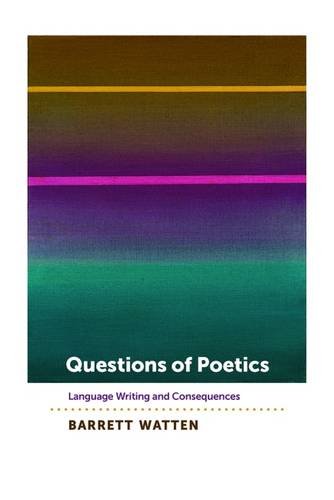The following is a collectively authored and lightly edited chronology of significant events and publications in poetry and poetics from 2010 to 2015. Submit 3–5 entries, including year and month, to barrett.watten@gmail.com for inclusion. The project is intended to sample an expansive account of poetic activity during this period, as an aid to memory, reflection, and action.
2010
April Alice Notley, Reason and Other Women (Chax Press)
Rae Armantrout wins the Pulitzer Prize for Poetry
June Rethinking Poetics conference, Columbia University; organized by Bob Perelman and Michael Golsten
July 95 Cent Skool: Summer Seminar in Social Poetics, Oakland; organized by Joshua Clover and Juliana Spahr
October Final volume of The Grand Piano: An Experiment in Collective Autobiography (Mode A/This Press)
Gail Scott, The Obituary (Nightboat); a novel close to poetry and the impact of First Nations genocide on urban psycho-geography
November Ed Roberson, To See the Earth Before the End of the World (Wesleyan UP)
December Kit Robinson, Determination (Cuneiform Press)
2011
August Durruti Free Skool, sequel to the 95 Cent Skool, Berkeley
ARMED CELL 1, ed. Brian Ang, distributed at Durruti Free Skool
September Start of Occupy movement, which would include significant participation and related publishing by poets
November Performances of The Grand Piano at University of California Berkeley and California College of Arts, San Francisco (dates t/k)
2012
January Death of Stacy Doris (January 31)
February Franziska Ruprecht’s Dichtwerkvariété events combine performed writing with American variety show style in Munich, Germany
April Lyn Hejinian, The Book of a Thousand Eyes (Omnidawn)
May Death of Leslie Scalapino (May 28)
September Death of Arkadii Dragomoshchenko (September 12)
November Amiri Baraka at the African-American Museum, Detroit (November 16)
2013
May East Bay Poetry Summit
September Carla Harryman, W/M (Split Level)
November Ronald Johnson, Ark (Flood Editions)
2014
January Death of Amiri Baraka (January 19)
March Nathaniel Mackey, Outer Pradesh (Anomalous Press)
May The Water Street Journal; an act of sublime and politically radical piracy published on May Day without a barcode and distributed free in Ypsilanti, MI
December 10th anniversary of Dos Madres Press, Heterotopia Book Store, Cincinnati (date t/k)
2015
January Franziska Ruprecht, Meer-Maid (Wolfbach Verlag)
February Tony Sanders (d. February 11) wins the Bernard F. Conners Prize
March Kenneth Goldsmith performs Michael Brown’s autopsy report at Brown University (date t/k)
June Cancellation of Berkeley Poetry Conference after complaints over inclusion of Vanessa Place; the conference is restructured and renamed Crosstalk, Color, Composition: A Berkeley Poetry Conference
August Death of Stephen Rodefer (August 22)
Hungarian PEN awards Charles Bernstein the Janus Pannonius Grand Prize for Poetry
September A poetry reading with three black men and one working-class man of unspecified ethnicity in an Ypsilanti house to celebrate one among them who has suffered from police harassment (September 11)















